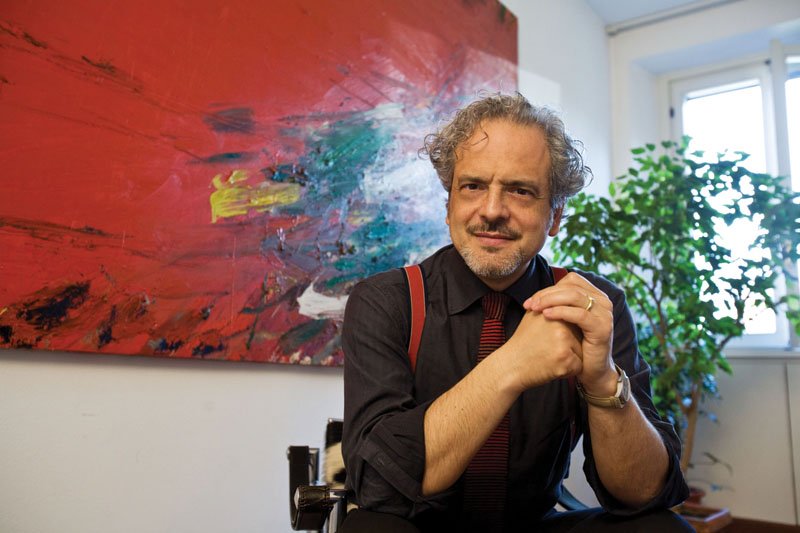Memorably “Imperfect”
An interview with composer Giorgio Battistelli
by Ludovica Rossi PURINI
Giorgio Battistelli is an award-winning composer of classical music, opera and musical theater, performed by such greats as Riccardo Muti, Antonio Pappano, Lorin Maazel, Daniele Gatti, Daniel Harding, Ádám Fischer and others. Recipient of the prestigious Commentatore dell’Ordine al merito of the Italian Republic, Battistelli has vast experience in the most prestigious musical institutions worldwide. His newest opera is set to premiere at the Teatro della Scala, Milan in 2015. The following interview took place in Rome on September 13, 2013.
LUDOVICA ROSSI PURINI: This year, 200 years after the birth of Giuseppe Verdi, the whole world joins Italy in paying tribute to the greatness of the famous composer from the human, political and cultural standpoint. Thousands of operas, films and documentaries, exhibitions, conferences and books celebrate the great musical genius, his enduring fascination to the listener and the universality of the values that animate his work. What more can be done to celebrate this event?
GIORGIO BATTISTELLI : The calendar of events is definitely very dense but certainly this anniversary could be the occasion for some important reflections on contemporary opera. Verdi represents a milestone in the history of opera and its modernity lies in its eclectic dramatical size. A country like Italy, so deeply and diversely layered, currently produces a wide operatic variety that has changed considerably from what it was at the time of Giuseppe Verdi. This event can provide the setting for its in-depth analysis.
LRP: Why have various definitions changed opera?
GB: New forms of media, television, cinema, etc., have significantly changed the relationship between the eye and ear in favor of a clear predominance of the eye. What we see is more important than what we hear. This different sensory dialectic is not always positive when it comes to melodrama as there is a risk that the work itself will become the pretext of the opera, where the focus shifts more to size than the spectacular musical score.
LRP: Maestro, as a composer you have produced more than thirty works and next year will debut your new opera CO2 at the Teatro alla Scala in Milan, under the direction of Robert Carsen. How do you think this complex issue of sensory dialectics, the relationship between the visual narrative and musical language, can be resolved?
GB: You absolutely must avoid devising the work in such a way that it becomes hypertrophic visual signals, since this inevitably departs from the ability to properly listen, to hear. Moreover, while the visual element is stable, music transports you through time and its flow and so is more difficult to follow in its development. Just thinking about the representation of Verdi’s operas, I remember in particular the Fura dels Baus Aida at the Arena di Verona and one of Zeffirelli’s in Parma, the latter transformed to a chamber-music perspective, in which the relationship between visual narrative and musical language was perfectly balanced and Verdi’s great music was never lost.
LRP: Verdi is being celebrated not only in Italy but throughout the world. How do you explain the international appeal of this fascinating composer?
GB: Giuseppe Verdi was a composer who knew how to create a true osmosis between the articulation of well-defined and universally recognizable narrative aspects, and music that not only emphasizes but conceptualizes them. The music’s performance is always understandable and narratively consistent. Without wishing to be provocative, I could define Verdi as “an imperfect composer” where sometimes perfection in the scores of the harmonic language is sacrificed in order to maximize appearance and dramatic narrative. But this imperfection, in my opinion, is what made him the great operatic composer still loved around the world.

